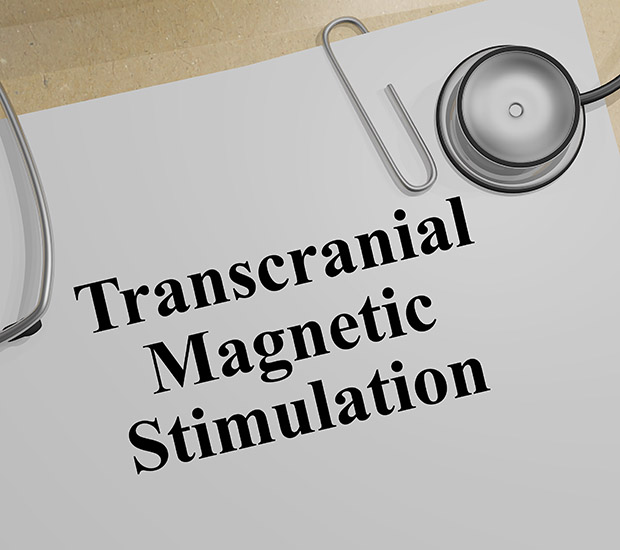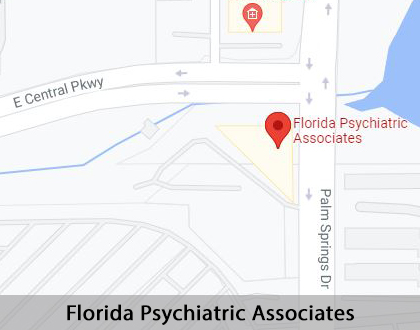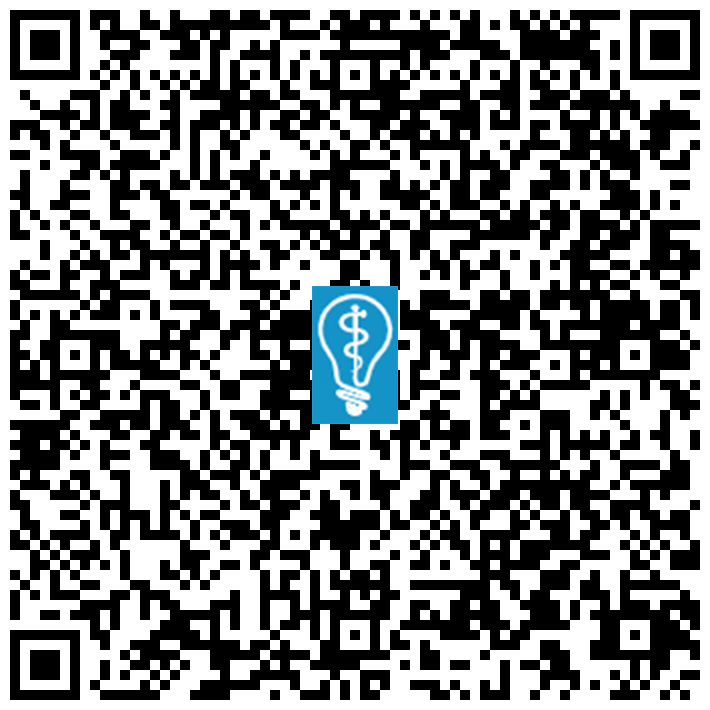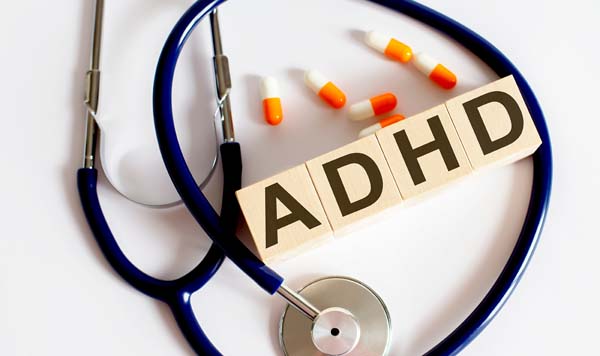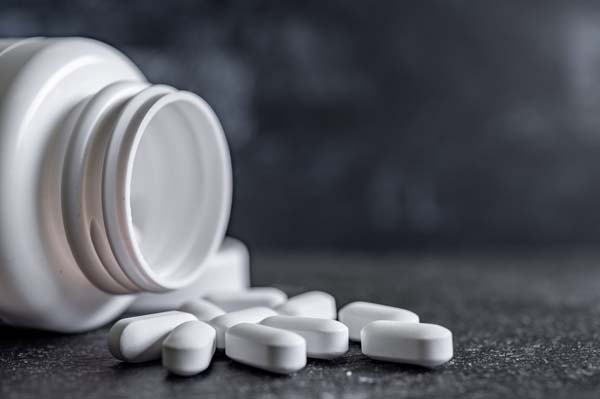Transcranial Magnetic Stimulation (TMS) Altamonte Springs, FL
Transcranial magnetic stimulation (TMS) is helping many find relief from mental illness. Thousands of Americans struggle with mental illness and not all respond to traditional treatment such as an antidepressant or anti-anxiety drugs. TMS is a drug-free treatment that can treat a range of mental disorders. TMS treatment works directly to relieve symptoms and promote healthy brain function.
More information about TMS treatment is available at Florida Psychiatric Associates in Altamonte Springs, and the surrounding area. If you have a treatment-resistant mental illness, TMS may help. Call us at 407-960-5633 to learn more.
TMS and Its Types
TMS uses electromagnetic fields to stimulate certain parts of the brain. The device delivers small magnetic pulses that produce electrical currents inside the brain. Researchers believe that this process encourages healthy neurological function.
At the moment, patients have access to two different types of TMS. Repetitive TMS, also known as rTMS, is a popular option. This treatment is sometimes known as traditional TMS. Deep TMS, or dTMS, is slightly different. dTMS uses a similar mechanism but has broader applications. dTMS reaches into deep brain structures to treat the underlying condition. This form of TMS may help patients with complex conditions or severe symptoms.
During the evaluation, the team can determine which form of TMS is right for the patient. Most patients achieve results through rTMS. In some cases, the team may suggest dTMS as an alternative.
“TMS uses electromagnetic fields to stimulate certain parts of the brain.”
How TMS works
Researchers believe that TMS helps the brain produce more neurotransmitters. Boosting neurotransmitter production helps improve brain function. This can help the brain communicate better with the rest of the body, even learning to correct chemical imbalances that cause depression or anxiety.
TMS is non-invasive. During treatment, the technician places a magnetic coil around the patient’s forehead and temples. This process requires no injections, incisions, or medications. Most patients find the TMS treatment process to be pain-free. After treatment, patients can return home right away.
“Researchers believe that TMS helps the brain produce more neurotransmitters.”
Candidates for TMS
TMS is well-tolerated and generally risk-free. As a result, most patients are eligible for TMS. However, some patients might achieve better results from another form of care. Before recommending TMS, the medical team reviews the patient's medical history. We help patients consider each of their options. TMS can ease symptoms linked to:
- Major depressive disorder
- Obsessive-compulsive disorder (OCD)
- Post-traumatic stress disorder (PTSD)
- Anxiety
- Migraine headaches
Some patients with addiction issues or eating disorders have also benefited from TMS. If someone has dementia or other cognitive problems, TMS may not be appropriate for them. Researchers have found limited evidence that TMS helps improve cognitive performance. Medical research is ongoing.
The FDA has approved TMS for adults, and it is suitable for most pregnant patients. Most children and teens are not eligible for TMS. You might be unable to receive TMS if you have:
- Stents
- Pacemakers
- Medication pumps
- Cochlear implants
TMS may not be appropriate for patients with seizure disorders, either. If someone is not sure whether TMS is a good fit, they should call our office. Our medical team can determine if someone is a candidate for TMS.
“Before recommending TMS, the medical team reviews the patient’s medical history.”
Check out what others are saying about our mental wellness on Yelp: Transcranial Magnetic Stimulation (TMS) in Altamonte Springs, FL
What to Expect from TMS
TMS treatment plans can vary. At first, patients have sessions 5-7 times per week. This initial treatment period lasts for 4-6 weeks. Each appointment usually lasts for 30-40 minutes. Afterward, patients may receive "booster" treatments several times a year. During treatment, the team provides earplugs while sitting in a chair with the electromagnetic coil against their head.
The device may switch off and on many times during treatment. It produces a clicking or tapping sound, which is why patients wear earplugs. As the device works, the patient may feel a tapping sensation against their head. The patient will be awake and oriented throughout treatment. The technician observes the patient’s reaction and adjusts the magnetic dosage as needed. They continue to make adjustments throughout the treatment cycle.
TMS works on an outpatient basis, with most patients returning to their normal activities right away. Many patients drive themselves home. Before the patient leaves the clinic, the team conducts an examination to ensure the patient is alert, comfortable, and responding well to treatment.
“As the device works, the patient may feel a tapping sensation against their head.”
Questions Answered on This Page
Q. What is TMS?
Q. Am I a good candidate for TMS?
Q. What happens during TMS treatment?
Q. Is TMS safe?
People Also Ask
Q. What are the different types of anxiety?
Side Effects of TMS
TMS seldom causes side effects. Most patients tolerate their treatment with minimal discomfort. Sometimes, patients might experience a mild headache or scalp discomfort. They may also notice some muscle twitching. These effects usually disappear within a few hours.
In rare cases, patients might experience seizures or manic episodes. If patients fail to wear ear protection during treatment, they might develop hearing problems. Rest assured, the team works with patients at each stage in treatment. Our team takes every precaution to ensure patient safety.
“TMS seldom causes side effects.”
Frequently Asked Questions
Q. How does TMS compare to other treatments?
A. Most treatment plans for mental disorders include medication. Unfortunately, some patients do not see results from these drugs. Others cannot tolerate medication due to pregnancy or another health concern.
TMS treatment is drug-free, and research shows that it works well on patients who have not responded to other treatments. Unlike electroconvulsive treatment, TMS requires no sedation. Patients may achieve optimal results by combining TMS with treatment. Our team can provide more information about using TMS alongside other treatments.
Q. Can TMS help treatment-resistant depression?
A. TMS treatment delivers results, even for patients who have struggled to find effective treatment. Several studies have compared the effectiveness of TMS and antidepressants. TMS produces better results in patients that have not responded to other treatments.
Q. Is TMS treatment safe for children?
A. TMS is approved for the treatment of depression, OCD, and other mental disorders. But at the moment, only adults can receive TMS. Some clinical trials are examining the use of TMS in children, but results are still pending. Our team can provide more information about clinical trials.
Q. Can I receive TMS treatment for addiction disorders?
A. Researchers have found that TMS may ease symptoms associated with addiction and withdrawal. TMS might prevent relapse in some patients, too. Researchers believe that TMS resolves underlying problems like depression, anxiety, or intrusive thoughts. Patients may improve their chances of sobriety, but research in this area is ongoing.
Q. Can I receive TMS treatment while pregnant or nursing?
A. Most patients can receive TMS while pregnant or breastfeeding. TMS acts directly on the brain, and it requires no medication. Researchers have found no evidence that this treatment is harmful to a developing fetus. But if you suspect that you might be pregnant, let our team know before treatment begins. Our team can provide individualized guidance.
Change Is Possible – Call Us Today
Life isn’t always easy. Are you struggling? Are you looking for a highly personalized and professional approach tailored to your individual needs? Instead of waiting around, call us today. You should know that there is hope for a better tomorrow.
Definitions
Call Us Today
If you have not seen results from antidepressants, TMS treatment may be right for you. If you would like to know more about TMS, let Florida Psychiatric Associates in Altamonte Springs help. Call us at 407-960-5633 to learn more about our services and policies.
Helpful Related Links
- American Psychiatric Association (APA). Mental Health Topics. 2021
About our business, license, and website security
- Florida Psychiatric Associates was established in 2003.
- We accept the following payment methods: American Express, Cash, Discover, MasterCard, and Visa
- We serve patients from the following counties: Seminole County, Volusia County and Orange County
- We serve patients from the following cities: Altamonte Springs, Lake Mary, Sanford, Deltona, Orange City, DeBary, Apopka, Maitland, Winter Park and Orlando
- FL (License #ME68974). View License Information and Specifics
- National Provider Identifier Database (1518910835). View NPI Registry Information
- Norton Safe Web. View Details
- Trend Micro Site Safety Center. View Details
